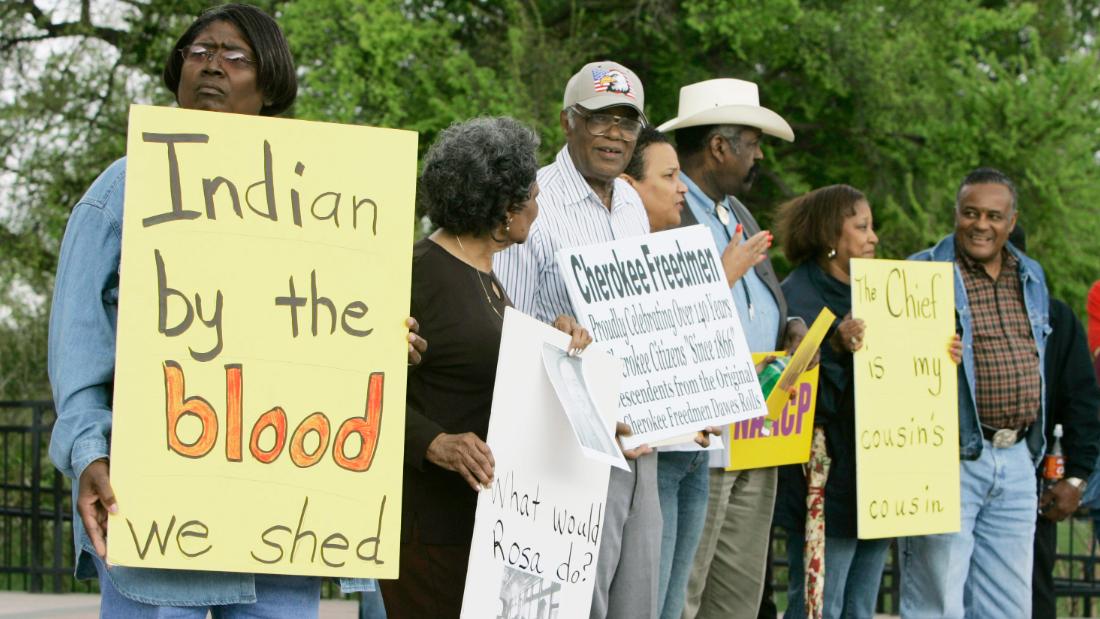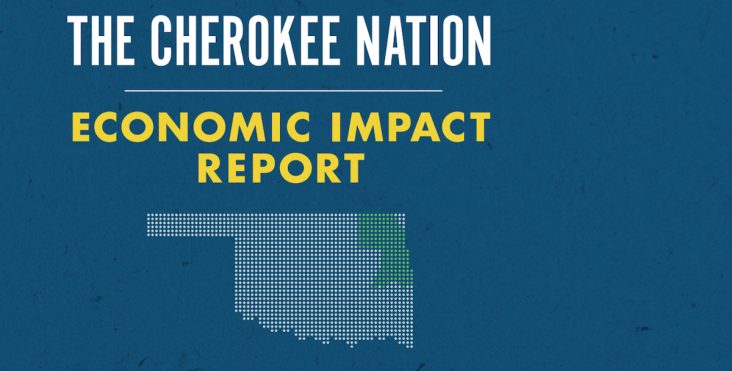The Cherokee Nation: A Legacy of Resilience and Renewal
The Cherokee Nation: A Legacy of Resilience and Renewal

The Cherokee Nation, the largest tribe in the United States, is a living testament to the power of resilience and cultural continuity. Their story, woven through centuries of hardship and triumph, is a powerful reminder of the enduring strength of Indigenous peoples. From their ancestral homelands in the southeastern United States to their forced relocation to Oklahoma, the Cherokee Nation has navigated a complex and challenging history, ultimately emerging as a thriving and self-governing nation.
A Legacy of Strength and Perseverance
Related Articles: The Cherokee Nation: A Legacy of Resilience and Renewal
- Uncover the Enigmatic World of Texas Panhandle Native American Tribes
- New York’s Hidden Worlds: A Guide To The State’s Indian Reservations
- Unveil the Lost Tribes of West Virginia: Uncovering Native American Heritage
- Unveil the Enchanting World of Indian Tribes in New Mexico: Discover Hidden Gems and Gain Profound Insights
- Uncover Hidden Gems: Explore the Intriguing World of Native Reservations in the US
The Cherokee, known as "the people" in their own language, have a rich and complex history that stretches back thousands of years. Their ancestors, the ancestors of all Cherokee people, were the first inhabitants of the land that is now the southeastern United States. They developed a sophisticated and thriving culture, with a complex language, a written language called syllabary, and a unique social and political structure.
However, the arrival of European colonists in the 16th century marked a dramatic shift in the Cherokee experience. The colonists, driven by greed and a desire for land, began encroaching on Cherokee territory, pushing them further and further west. Despite the challenges they faced, the Cherokee Nation resisted assimilation, clinging to their language, culture, and traditions.
The Trail of Tears: A Dark Chapter in American History
The 19th century saw the Cherokee Nation face one of its greatest challenges: the forced removal of their people from their ancestral homelands. In 1830, the Indian Removal Act was passed, authorizing the government to forcibly relocate Native American tribes west of the Mississippi River. The Cherokee Nation, despite their strong resistance, was ultimately forced to comply.
The forced relocation, known as the Trail of Tears, was a devastating event that resulted in the deaths of thousands of Cherokee people. Their journey was fraught with hardship, starvation, and disease. The Cherokee people were forced to leave their homes, their communities, and their sacred burial grounds behind, marking a profound loss and a deep wound in their collective memory.
A New Beginning in Oklahoma
Despite the tragedy of the Trail of Tears, the Cherokee people did not give up. They rebuilt their lives in Oklahoma, establishing a new home and a new government. They continued to hold onto their language, their traditions, and their identity.
The Cherokee Nation, under the leadership of Chief John Ross, fought tirelessly to regain their rights and their sovereignty. They signed treaties with the United States government, establishing a framework for self-governance and land ownership. Their efforts ultimately led to the establishment of the Cherokee Nation as a sovereign entity within the United States.

The Cherokee Nation Today: A Thriving and Self-Governing Nation
Today, the Cherokee Nation is a thriving and self-governing nation. They have a strong economy, with a diverse portfolio of businesses and enterprises. They have a robust educational system, with their own colleges and universities. They have a vibrant cultural life, with museums, art centers, and theaters dedicated to preserving and celebrating their heritage.
The Cherokee Nation is also a leader in advocating for Indigenous rights and self-determination. They have been at the forefront of the movement to address the legacy of colonialism and to ensure that Indigenous voices are heard and respected.
The Cherokee Language: A Legacy of Oral Tradition
The Cherokee language, known as Tsalagi Gawonihisdi, is a vital part of Cherokee identity. It is a complex and beautiful language, rich in history and culture. The Cherokee language is a living language, spoken by thousands of people today.

However, the Cherokee language has faced challenges in recent decades. The forced relocation of the Cherokee people and the assimilation policies of the United States government led to a decline in the number of speakers. However, there is a growing movement to revitalize the Cherokee language. The Cherokee Nation has invested heavily in language education programs, and there are now many resources available to help people learn and speak the language.
Cherokee Culture: A Tapestry of Tradition and Innovation
Cherokee culture is a rich and diverse tapestry of traditions, beliefs, and practices. It is a culture that has been shaped by the experiences of the Cherokee people over centuries.
Cherokee culture is rooted in a deep respect for the natural world. They believe that all living things are interconnected and that humans have a responsibility to protect the environment. Their traditional arts and crafts, such as basket weaving, pottery, and beadwork, reflect their connection to nature.
Cherokee culture is also known for its storytelling tradition. Stories are passed down through generations, preserving the history, beliefs, and values of the Cherokee people. These stories are a powerful reminder of the Cherokee Nation’s resilience and strength.

The Cherokee Nation: A Model of Self-Determination
The Cherokee Nation is a powerful example of the resilience and determination of Indigenous peoples. Despite the challenges they have faced, they have maintained their cultural identity and their sovereignty. They have built a thriving nation, based on their own values and traditions.
The Cherokee Nation’s story is a reminder that Indigenous peoples are not just a part of the past, but a vibrant and essential part of the present and future. Their legacy is one of strength, resilience, and cultural continuity. They are a testament to the power of self-determination and the importance of preserving Indigenous cultures and languages.
FAQ about the Cherokee Nation:
Q: What is the Cherokee Nation’s current population?
A: The Cherokee Nation is the largest tribe in the United States, with a current population of over 400,000 members.
Q: Where is the Cherokee Nation located?
A: The Cherokee Nation’s jurisdictional territory is located in northeastern Oklahoma. The Cherokee Nation’s capital is Tahlequah, Oklahoma.
Q: What is the Cherokee Nation’s government like?
A: The Cherokee Nation has its own constitution and government, with an elected tribal council and a chief. The Cherokee Nation is a sovereign entity within the United States, with the right to self-governance.
Q: What is the Cherokee language called?
A: The Cherokee language is called Tsalagi Gawonihisdi, which means "Cherokee language." It is a unique language, with its own writing system, known as the Cherokee syllabary.
Q: What is the Cherokee Nation’s most important cultural tradition?
A: The Cherokee Nation has many important cultural traditions, but one of the most important is the storytelling tradition. Stories are passed down through generations, preserving the history, beliefs, and values of the Cherokee people.
Q: What are some of the challenges the Cherokee Nation faces today?
A: The Cherokee Nation faces many challenges today, including the legacy of colonialism, the ongoing fight for land rights, and the need to address the high rates of poverty and disease among their people. However, the Cherokee Nation is also a strong and resilient people, and they are working to address these challenges and to build a better future for their people.
Q: What is the significance of the Cherokee Nation to the United States?
A: The Cherokee Nation is a significant part of American history and culture. Their story is a reminder of the resilience and determination of Indigenous peoples. They are a powerful example of self-determination and cultural continuity. Their story is also a reminder of the importance of acknowledging and addressing the legacy of colonialism in the United States.
The Cherokee Nation’s story is a powerful reminder that the history of Indigenous peoples is not a relic of the past, but a living and vibrant part of the present. Their journey is one of resilience, strength, and cultural continuity, a testament to the enduring power of Indigenous peoples to persevere and thrive.

Closure
Thus, we hope this article has provided valuable insights into The Cherokee Nation: A Legacy of Resilience and Renewal. We hope you find this article informative and beneficial. See you in our next article!

